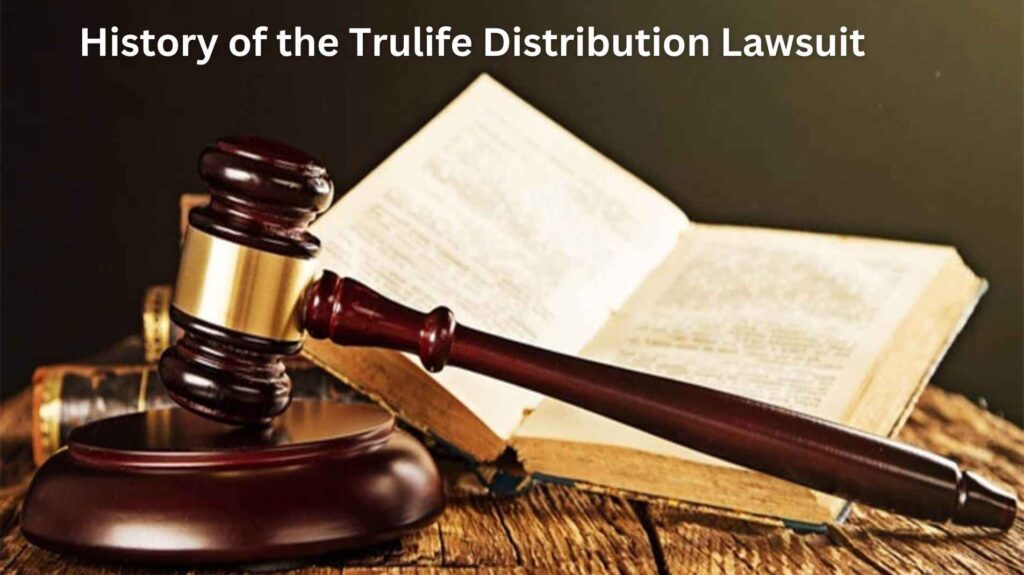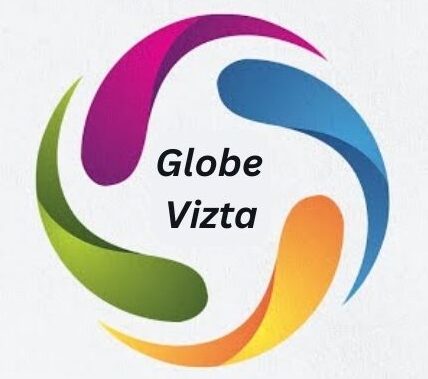In the ever-growing medical sector, a family dispute has taken center stage, shaking up the health industry. The Trulife Distribution lawsuit pits father against son in a legal battle that’s sending shockwaves through the world of herbal supplements and dietary products.
This isn’t just any corporate squabble, it’s a story of Brian Gould, founder of Trulife Distribution, facing off against his father Mitch Gould, the man behind Nutritional Products International (NPI). Both companies have been key players in bringing herbal, organic, and daily-use items to American consumers.
But now, accusations of deception and false claims have turned this family business into a courtroom drama. Let’s dive into the nitty-gritty of this lawsuit that’s making waves in the medical field, and explore how it might impact the future of natural supplements and the booming wellness market that’s projected to hit a whopping $200 billion in the USA by 2026.
Background Of Trulife Distribution
Founded by Brian Gould in 2019, Trulife Distribution leverages three generations of family expertise in manufacturing, retailing, and distribution. Based in Fort Lauderdale, Florida, the company offers a full range of services, including marketing, sales, distribution, shipping, logistics, and FDA compliance, primarily targeting the U.S. health and wellness sector.
Trulife’s experienced team focuses on helping companies navigate the competitive retail landscape, particularly in sports nutrition and wellness, aiming to expand businesses and deliver products to American consumers. With a strong physical distribution network, Trulife supports brands seeking to enter or grow in the U.S. market.
The History of the Trulife Distribution Lawsuit

Nutritional Products International (NPI), founded in 2008, and Trulife Distribution, established in 2019, are both Florida-based companies in the same industry. Mitch Gould, CEO of NPI, and his son Brian Gould, CEO of Trulife, are at the center of a lawsuit filed by NPI in 2012.
NPI accuses Trulife of deceptive trade practices, claiming that Trulife created spoofed emails to impersonate NPI and attract its clients.
The lawsuit also alleges Trulife misrepresented NPI’s case studies as its own. This legal dispute involves laws like the Anti-Cybersquatting Consumer Protection Act and Florida’s Deceptive and Unfair Trade Practices Act.
See Also: Springfield Mesothelioma Legal Question: Understanding Your Legal Rights
Allegations and Claims in Trulife Distribution Lawsuit
The Trulife Distribution lawsuit has thrown open a Pandora’s box of allegations that have sent shockwaves through the medical sector. At the heart of this legal battle are claims made by Nutritional Products International (NPI) against Trulife, painting a picture of a company allegedly built on shaky foundations.
These accusations range from deceptive information to false statements, creating a storm in the health industry that’s hard to ignore. As we delve deeper into each allegation, we’ll see how this family feud has morphed into a full-blown legal drama, potentially reshaping the landscape of herbal supplements and dietary products.
The implications of these claims stretch far beyond the courtroom, touching everyone from retailers to consumers who rely on these natural, herbal, and day-to-day items for their wellbeing.
Deceptive Information
NPI’s lawsuit alleges that Trulife Distribution engaged in deceptive information practices. They claim Trulife used NPI’s case studies and success stories, presenting them as their own achievements. This alleged misrepresentation could have misled potential clients about Trulife’s track record in the medical sector, potentially giving them an unfair advantage in the competitive world of herbal supplements and dietary products.
False Statements
The lawsuit further accuses Trulife of making false statements to clients. While the specific details aren’t public, these allegations suggest that Trulife may have exaggerated its capabilities or achievements in the health industry.
Such claims, if proven true, could seriously undermine trust in the company and potentially impact the broader market for herbal, organic, and daily-use items.
Wrong and Confusing Business Practice
NPI alleges that Trulife engaged in wrong and confusing business practices. One key accusation involves the creation of email addresses similar to those used by NPI staff.
This could have led to miscommunication and confusion among clients and partners in the medical field, potentially damaging NPI’s relationships and reputation in the medical sector.
Misleading Endorsements
Another serious allegation in the lawsuit involves misleading endorsements. NPI claims that Trulife used fake celebrity endorsements and media coverage to boost its credibility.
This includes alleged false endorsements from figures like Jenna Jameson and media outlets such as Newsmax TV. If true, this could have given Trulife an unearned air of legitimacy in the health industry.
False Client Success Stories
The final major allegation involves false client success stories. NPI accuses Trulife of stealing and repurposing NPI’s client success stories, presenting them as their own on Trulife’s website.
This alleged misrepresentation could have painted an inaccurate picture of Trulife’s experience and success in distributing natural supplements and other health products.
Response from Trulife to The Allegations

In the face of these weighty allegations, Trulife Distribution hasn’t remained silent. The company, founded by Brian Gould, has come out swinging, vehemently denying all claims made by Nutritional Products International (NPI).
Trulife asserts its independence and lawful operations in the medical sector, suggesting that NPI’s lawsuit is driven by anti-competitive motives rather than genuine grievances. They’ve acknowledged some data issues on their website but chalk it up to technical glitches and unintentional errors, not deliberate deception.
Trulife maintains that NPI hasn’t provided concrete evidence to back up its claims of wrongdoing. This robust defense sets the stage for a heated legal battle that could have far-reaching implications for the health industry, particularly in the realm of herbal supplements and dietary products.
The Actual Status of This Lawsuit
The Trulife Distribution lawsuit, filed by NPI on May 4, 2022, is currently being heard in the United States District Court for the Southern District of Florida. Judge Raag Singhal is overseeing the case, which has seen several developments since its inception. Both parties have been actively engaged in legal maneuvers, with Trulife attempting to dismiss the claim and NPI pushing for discovery.
Here is The Summary
The lawsuit has seen rapid developments since its filing. In June 2022, Trulife moved to dismiss the claim, citing lack of jurisdiction. July saw a scheduling conference, while August brought an appeal from NPI to compel discovery.
September marked Trulife’s countersuit for defamation. In November, Trulife’s anti-SLAPP motion was dismissed by the judge, setting the stage for further legal battles in this family feud within the medical sector.
Impacts of The Lawsuit on Society and Families
The ripple effects of the Trulife Distribution lawsuit extend far beyond the courtroom, touching various aspects of society and family dynamics. In the medical sector, this legal battle has cast a shadow of uncertainty over stakeholders, including investors and partners who may now be wary of the potential financial implications.
The lawsuit could lead to price fluctuations and stock instability, affecting not just the companies involved but the broader health industry. For consumers relying on herbal supplements and dietary products, this dispute might shake their confidence in the brands they’ve come to trust. On a more personal level, this father-son feud serves as a stark reminder of how business conflicts can tear families apart.
The Gould family’s public dispute might make other family-owned businesses in the medical field reconsider their operational structures and succession plans. As the case unfolds, it’s clear that its impact will be felt not just in boardrooms, but in homes across America.
Conclusion
The Trulife Distribution lawsuit is more than a corporate conflict; it’s a high-stakes legal battle that could reshape the herbal supplements and dietary products market. Allegations of deception, false statements, and misleading practices have cast a shadow over the industry, potentially affecting consumers, retailers, and investors.
As the case unfolds in court, its implications may ripple through the health sector, prompting companies to scrutinize their business practices more closely.
Beyond the business impact, this father-son feud offers a cautionary tale about the complexities of family-run enterprises and the fragile balance between personal relationships and professional ambitions.
FAQs
Who is the Trulife Distribution?
Trulife Distribution, founded by Brian Gould, is a company specializing in distributing herbal supplements and dietary products in the U.S.
Who files the lawsuit against Trulife?
The lawsuit against Trulife was filed by Nutritional Products International (NPI), led by Mitch Gould.
What are the allegations behind this lawsuit?
The lawsuit alleges that Trulife engaged in deceptive practices, false statements, misleading endorsements, and false client success stories.
How can his lawsuit disturb the medical field?
This lawsuit could impact the credibility of natural supplement companies, leading to consumer distrust and potential market instability.


